Iranian, Qatari Leaders And Chief Diplomats Hold Talks
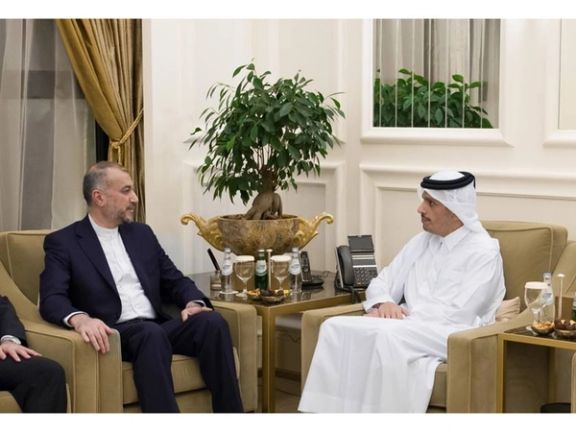
Iran’s president and foreign minister held separate talks with Qatar’s Emir and foreign minister respectively on Saturday, discussing the conflict between Israel and Hamas.

Iran’s president and foreign minister held separate talks with Qatar’s Emir and foreign minister respectively on Saturday, discussing the conflict between Israel and Hamas.
President Ebrahim Raisi held a telephone call with Sheikh Tamim bin Hamad Al Thani, the Emir of Qatar. The two sides praised bilateral ties and discussed what the situation of Gaza, where Israel is preparing a ground offensive.
While the Iranian president accused Israel of genocide and condemned the United States for rendering support to the Jewish state, the Qatari Emir emphasized that without the realization of Palestinian rights there would be no stability in the region.
Iran foreign minister Hossein Amir-Abdollahian arrived in Qatar, after a regional tour of Iraq, Lebanon and Syria. He held talks with Prime Minister and Minister of Foreign Affairs Sheikh Mohammed bin Abdulrahman bin Jassim Al-Thani.
A video on social media also showed the Iranian foreign minister meeting Hamas leader Ismail Haniyeh in Qatar.
Qatar’s official news agency reported that Sheikh Jasem al Thani “stressed, during the meeting, the necessity of working towards an immediate ceasefire, protecting civilians and releasing prisoners, and the danger of the expansion of violence and the cycle of conflict in the region, which will have dire consequences if it expands.
The Iranian and Qatari official media did not provide more information about the details of discussion between the top leaders and chief diplomats of the two countries. Amir-Abdollahian earlier in Lebanon threatened that Iran’s proxy forces are ready to join the conflict.
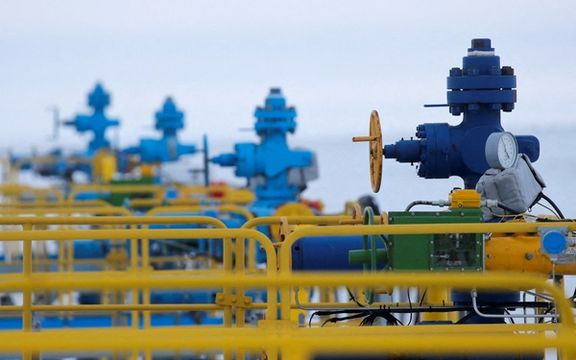
While none of the dozens of deals between Iranian and Russian oil companies over the past decade have been implemented, Russia now intends to export gas to Iran.
It should be noted that due to European sanctions, Russia faced serious challenges in selling natural gas. Simultaneously, during the three-day visit of Iran's Minister of Petroleum, Javad Owji, to Moscow this week to participate in the "Russian Energy Week" summit, Russian President Vladimir Putin, stated that "Tehran is in negotiations with Moscow to purchase gas.”
Previously, the agreement for Iran to purchase gas from Russia, along with several other agreements on developing oil and gas fields, constructing liquefied natural gas (LNG) plants, and investments in other energy sectors, was signed during the visit of a Gazprom delegation to Iran in July 2022.
While Iran proudly announced the signing of the "largest oil and gas agreements in the country's history worth $40 billion," Russia has not converted any of these memorandum of understandings (MoUs) into contracts and is now only negotiating the sale of gas to Iran.
About a decade ago, Iran also signed dozens of oil and gas MoUs with various Russian companies, none of which were executed.
Russia can potentially export 12 billion cubic meters (bcm) of gas annually to Iran via the Russia-Turkmenistan gas pipeline, which extends from the Turkmen Dowlatabad gas field on the border with Iran to Sarakhs-Khangiran.
Another older pipeline with an annual transfer capacity of 8 bcm/y of gas from Turkmenistan to Iran exists, but it is not connected to the Russia-Turkmenistan gas pipeline. However, Russia can use this pipeline to deliver additional gas to Turkmenistan and Iran can take Turkmen gas through swap.
Iran is currently facing a substantial gas shortage during the winter, and this gas can be used to offset domestic shortfalls and fulfill its gas export commitments to Iraq and Turkey.
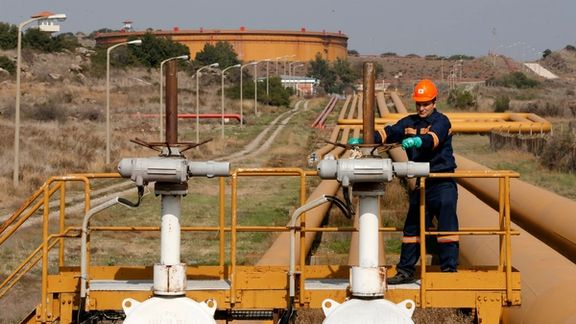
Iran’s dreams and Russia’s financial problems
Iran's hope lies in investments from Russia's Gazprom, despite the company's official financial report indicating that its revenues in the first half of 2023 was only 296 billion rubles (approximately $3.1 billion), which is 8.4 times less than the same period last year. This figure also represents nearly one-third of the company's gas sales income in the first halves of previous years before Russia's invasion of Ukraine.
Furthermore, Gazprom's debts have risen from 5 trillion rubles in July 2022 to 6 trillion rubles in July of this year, equivalent to $61 billion.
Additionally, Russia's total income from oil and gas exports in the first half of this year has dropped by 47% compared to the same period last year, reaching just over $37 billion. In this context, Iran's expectation for Gazprom or the Russian government to invest in the country's oil and gas fields seems unusual.
Moreover, some of the MoUs signed between Gazprom and Iran in July last year relate to projects for which Russia lacks the required technology. These projects include the pressurization of the South Pars gas field, involving the construction and installation of 20,000-ton platforms and large compressors as well as LNG facilities. Russia's own semi-finished LNG projects have been halted after foreign companies withdrew due to Western sanctions.
On the other hand, Iran is a potential rival for Russia in global oil and gas markets. Following Russia, Iran possesses the world's second-largest gas reserves, and its oil reserves surpass Russia's by as much as 30%.
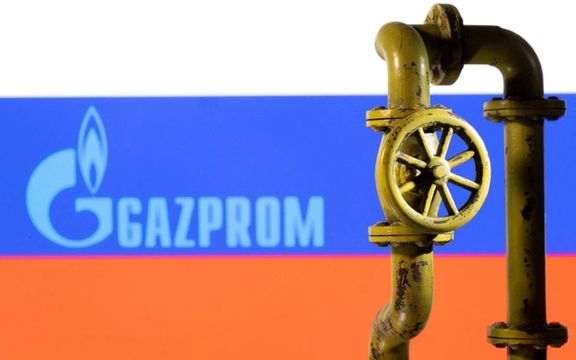
Imports of Petroleum Products
Iran, which has been facing gasoline and diesel shortages since the summer of last year, has begun importing these petroleum products from Russia since March 2023.
Iranian oil minister claimed on October 13 that the country has implemented the second phase of the Abadan refinery with a capacity of 210,000 barrels and operated the Isfahan refinery's diesel unit with a daily capacity of 20 million liters over the past few months.
Despite this claim, the diesel purification unit at Isfahan refinery, operating since March 2023 is aimed to reduce sulfur content, not additional diesel production.
According to an Iranian Oil Ministry’s official report, obtained by Iran International, the country's diesel production in April and May of this year not only did not show growth but it decreased by 1.2% compared to the same period last year, reaching 108 million liters per day.
On the other hand, contrary to Javad Owji’s claim, the data from the report shows that the government has set a daily crude oil refining target of 370,000 barrels for the Abadan refinery for the current year, which does not represent an increase compared to the previous year. The Abadan refinery, an ancient facility with over a century of history, is Iran's largest crude oil refinery, which, the report says converts 47% of the received crude oil into highly polluting fuel oil and bitumen.
Iranian efforts to work with Russia on energy issues create a complicated situation that needs serious examination. The history of unfulfilled agreements between the two countries highlights the difficulties and ambiguities that such partnerships confront. Although the latest Russian announcement of gas deliveries to Iran is interesting, it is important to remember the previous difficulties with agreement implementation. The discrepancy between Iran's fervent declarations and Russia's hesitation to turn memoranda into contracts points to a persistent problem.
A workable solution to Iran's acute gas deficit is the ability for Russia to transfer gas through already-existing pipelines. Iran's present domestic gas scarcity is a serious issue that must be addressed, especially during the winter.
According to an another official report, prepared by Iran’s National Petrochemical Company, obtained by Iran International, the country’s petrochemical plants worked with 70% of their capacity during last year, due to shortage of natural gas.
To meet Iran's energy demands and fulfill its international gas export responsibilities, it may be possible to obtain more gas from Russia, either directly or through gas swaps with Turkmenistan.
In conclusion, overcoming challenges and resolving unfulfilled commitments from the past is necessary to realize Iran's aspirations for an energy partnership with Russia. Success depends on converting intentions into concrete agreements that are in line with Iran's larger energy and economic objectives, including resolving gas shortages. Iran must carefully weigh the complications and unknowns associated with Russia's energy cooperation.
Contributors:
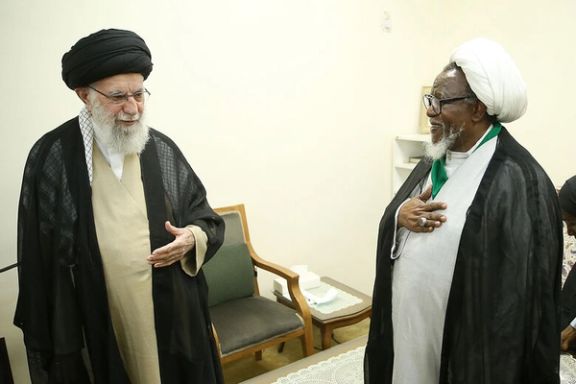
Iran’s Supreme Leader Ali Khamenei has rallied Nigeria's Shiite leader on a visit to Tehran, hailing the expansion of Shiite Islam and rallying for Palestine.
In a meeting with Sheikh Ibrahim Yaqoub El Zakzaky, Khamenei told him: “The Islamic Movement is expanding in Africa, Europe and North America,” rallying the world's Shiite population.
Zakzaky leads the Islamic Movement in Nigeria, a movement inspired by the Iranian Revolution that rejects Nigerian government authority. Known as Nigeria's Ayatollah, the outspoken cleric has been imprisoned for a range of charges including murder, culpable homicide, unlawful assembly and disruption of public peace as the government tries to quash the revolutionary movement.
“I hope you will be able to continue your fight,” said Khamenei, who backs Zakzaky's campaign to expand Shiite Islam in Nigeria where while around 50 percent of the country is Muslim, the majority is Sunni.
While Iran supports Nigeria's Islamic Movement, the regime also needs the support of the Nigerian government, last months energy talks discussing cooperation to combat energy challenges.
During the meeting of the two religious leaders, Khamenei raised the rally cry of the Palestinians as its proxy Hamas continues its war against Israel after an unprecedented and surprise attack on Saturday became the single most deadly day for Jews since the Holocaust.
“Everyone in the Islamic world has a duty to assist the Palestinians,” Khamenei said. Iran funds Hamas with around $100m a year in addition to military support and training but while Israeli officials accuse the Iranian regime of funding Hamas's surprise assault, Tehran denies involvement.
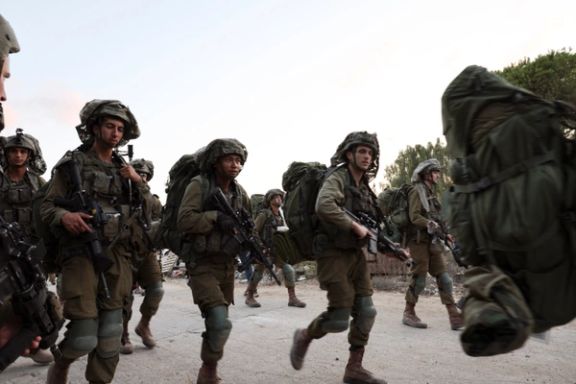
The Israeli Defense Forces (IDF) reported on Saturday that they had carried out extensive airstrikes overnight, resulting in the elimination of numerous Hamas members.
According to the IDF, Ali Qadhi, a company commander, was targeted in a drone strike, following intelligence coordination between the Shin Bet security agency and Military Intelligence Directorate. Qadhi had a history with Israel, having been arrested in 2005 for the abduction and murder of Israeli civilians. He had been released to the Gaza Strip as part of the 2011 Gilad Shalit prisoner exchange.
The airstrikes primarily focused on militants from the "Nukhba" branch of Hamas, identified by the IDF as a significant force behind the recent infiltration into Israel. The IDF statement highlighted that their operations had also struck the operational headquarters of Hamas responsible for aerial activities and resulted in the elimination of Merad Abu Merad, the head of the Hamas Aerial System in Gaza City.
The conflict between Hamas in the Gaza Strip and Israel began a week ago when Hamas initiated a surprise offensive on Israeli communities and cities along the southern border, killing well over 1,000 civilians and the abduction of more than 100 others.
Reports from Israeli media on Saturday morning indicated that the Israeli army had conducted raids in West Bank territories controlled by the Palestinian Authority, leading to the arrest of several senior Hamas leaders. The IDF has yet to officially confirm this development.
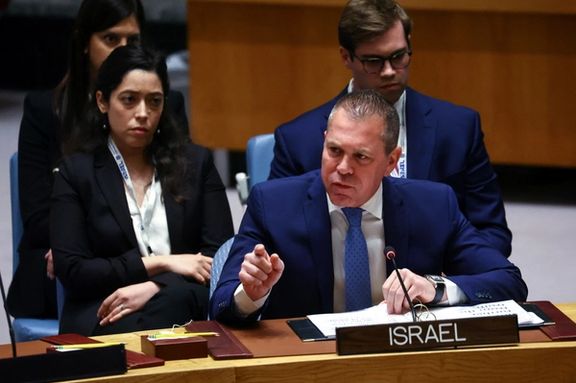
Israel's ambassador to the United Nations has called for a credible military threat to punish Iran for its ongoing support of terrorist groups.
In an interview with Iran International, the Israeli UN ambassador Gilad Erdan called the Iranian regime a global threat and said: “The Ayatollah regime today is exactly like the Nazi regime during WWII,” after Israeli civilians were slaughtered in the deadliest single day since the Holocaust last Saturday.
Erdan said when the leaders of Hamas publicly thank the Islamic Republic for providing them with weapons and funding, there is no need for us to prove Iran’s direct involvement in the offensive against Israel which saw thousands of Hamas militia enter Israel by air, land and sea last Saturday, after a barrage of thousands of rockets, which continues.
A recently resurfaced video of Izz el-Deen al-Qassam Brigades, the armed wing of Hamas, thanking Iranian leaders for providing them with “weapons, money and other equipment” has caused social media controversy, reinforcing the long-standing links between the group and Iranian regime.
“The situation in Gaza is under the responsibility of Hamas which has been oppressing people for the past 18 years and using every dollar that is being transferred to Gaza for humanitarian assistance and using it for its terror machine,” Erdan said.
Despite lauding Hamas' Al Aqsa Flood operation, which has resulted in more than 2,500 deaths in Israel and Gaza so far, Iran's ruler, Ali Khamenei denies any responsibility for the terror attack.
"We kiss the hands of those who planned the attack on the Zionist regime .... but those who claim that the recent victory belongs to non-Palestinians have miscalculated”, he said at a recent military graduation ceremony.
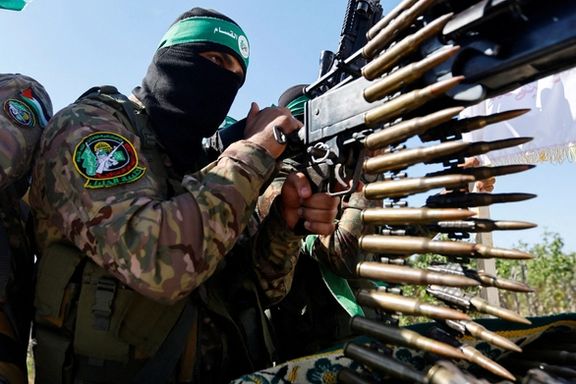
Iran's Foreign Minister adopts a more assertive tone. Currently, on a regional tour, Hossein Amir-Abdollahian stated that the resistance groups have planned for all possible scenarios warned, if Israel's attacks on Gaza do not cease immediately, the Hamas-Israel conflict might spread to other countries in the Middle East.
As of yet, the United States has not directly blamed Iran for the attack. National Security spokesman John Kirby said on Monday that the White House has not seen "hard, tangible evidence" that Iran was directly involved in Hamas' attacks against Israel.
In contrast, German Chancellor Olaf Scholz said on Thursday that Iran was responsible for helping Hamas grow to the point where it launched the attack on Israel last weekend, and that organizations that backed the Islamist movement would be severely repressed.
Meanwhile earlier this week, the UN Security Council was unable to reach the unanimity needed for a joint statement on the surprise ground and rocket attack on Israel, despite convening an emergency meeting behind closed doors. Members of the Security Council led by Russia were hoping for a broader focus than just condemning Hamas, according to diplomats.
The Iranian regime is a matter of direct concern for Israeli authorities. Prime Minister Benjamin Netanyahu blames Iran for having "encouraged and directed" the incident and Defense Minister Yoav Gallant also holds Iran responsible for funding the group: "Our neighbor is Hamas, the ISIS of Gaza. An organization enjoying the Iranian payroll," he said.
There is a clear incentive for Iran in this attack by Hamas because it coincides with a US-backed initiative aimed at encouraging Saudi Arabia to normalize its relations with Israel, which has been suspended, according to AFP.
According to the Washington-based Foundation for Defense of Democracies, Iran has established a network of at least 19 armed groups along Israel's borders, including in Gaza, the West Bank, Lebanon, and Syria. Hezbollah in Lebanon and Hamas in Gaza are the two largest of these organizations.

Iran's top Sunni leader Mowlavi Abdolhamid has contradicted the clerical regime on the Israeli-Palestinian conflict, saying that neither side should be destroyed.
Abdolhamid distanced himself from the regime’s goal of Israel's annihilation during his Friday prayer sermon, decried the attacks on civilians “that has shocked the world,” without directly mentioning the Tehran-backed Islamist group Hamas.
Hamas unleashed a bloody invasion into Israel on October 7, inflicting the biggest loss of life in one day since the Holocaust. Israel has been pounding Gaza in retaliation for the Hamas rampage in Israel this week that has killed over 1,300 people, the deadliest attack on civilians in the Israeli history. More than 1,800 Palestinians have been killed.
In an apparent condemnation of Hamas attack, he said, "If Muslims disregard international laws, assault women, and kills children, we do not blindly support it. "He noted that extremism by anyone is not tolerable. He emphasized that Israel should also refrain from violating international laws.
The outspoken cleric said, "Anyone with a shred of humanity is deeply affected when seeing these heart-wrenching scenes of human slaughter."
He added, "The reality is that neither Muslims can destroy Israel, nor Israel can eliminate Palestinians. It's not achievable. When something is not achievable, why use force?"
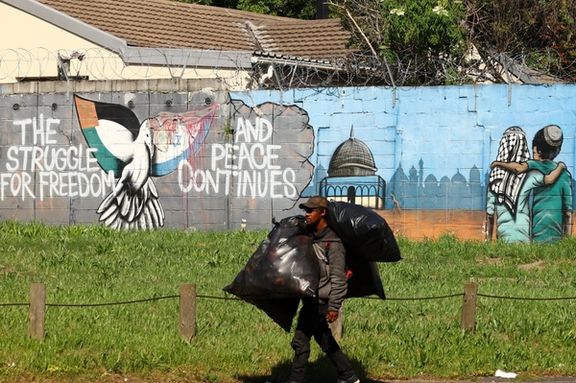
Abdolhamid emphasized the importance of maintaining a "fair stance" and suggested that governments and nations worldwide should strive to resolve differences rather than aligning themselves in this conflict. He said Israelis and Palestinians are two "nations" living alongside each other and also endorsed the idea of establishing two states.
The two-state solution to the Israeli–Palestinian conflict envisions an independent State of Palestine alongside the State of Israel, west of the Jordan River. The boundary between the two states is still subject to dispute and negotiation, with Palestinian and Arab leadership demanding full Israeli withdrawal from territories it occupied in 1967, which is rejected by Israel.
Abdolhamid’s practical views for a solution to the decades long conflict are in stark contrast to that of the Islamic Republic, which only sees the destruction of Israel as the solution.
In 2015, Supreme Leader Ali Khamenei said Israel must be destroyed in 25 years and the government even set up a countdown clock in Tehran and a few other cities. Many Iranians mock the anti-Israel rhetoric and the ticking clock, but the regime is adamant in pursuing the goal. Regime authorities use every opportunity to stress the necessity of "Israel's destruction," a slogan that has justified Iran’s huge financial and military support to militant groups such as Hamas and Hezbollah, while Iranian increasingly safe poverty and a bleak economic future.
While the Islamic Republic is cheering about the war in Israel, Iranians’ reactions to the regime’s propaganda indicate a complex societal schism. In Iran, once Khamenei dictates the regime's policy themes concerning global developments, other officials, clerics, and his representatives across the country begin to disseminate them.
Earlier in the year, Abdolhamid called for peace between Muslims and Jewish people, stating that "No one should think of the destruction of others, and everyone should think about peace." His remarks came against the backdrop of Iran’s repeated warnings against normalization of relations between Israel and Arab countries.
While Saudi Arabia and Israel had never been closer to a deal to establish official relations, US officials and a lot of pundits are of the opinion that the Hamas attack was meant to disrupt the normalization process.
After Abdolhamid’s sermons on Friday, people in several cities of the predominantly Sunni province of Sistan-Baluchestan took to streets and held anti-regime rallies.